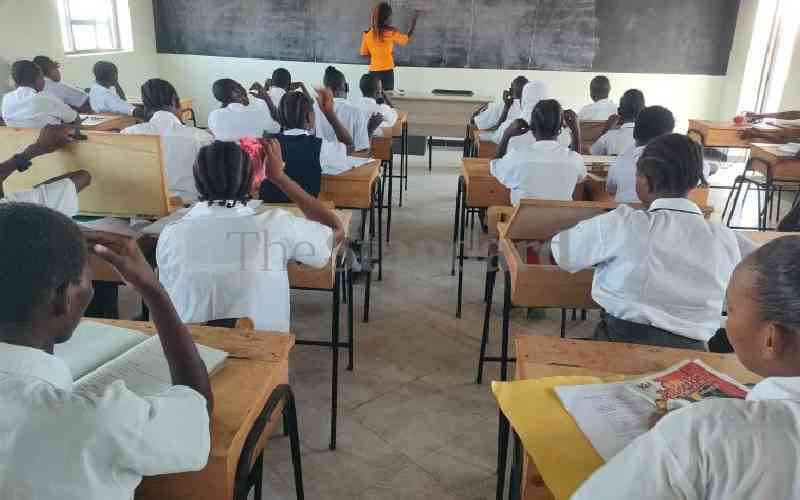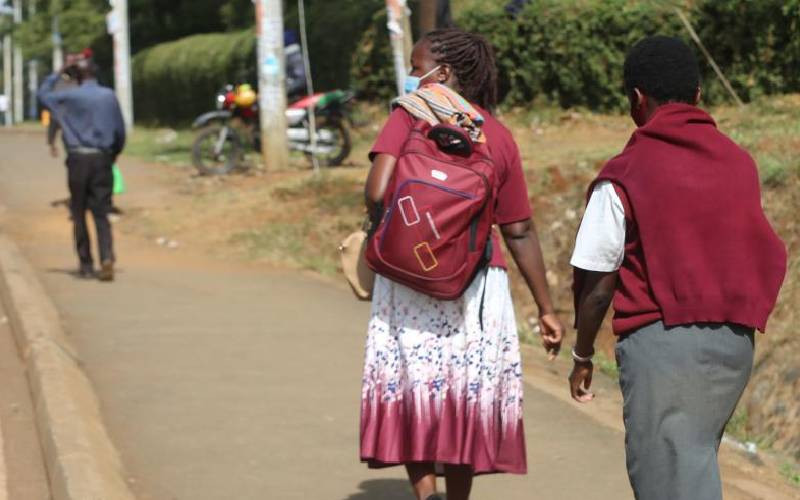
In an ideal situation, basic education should be universal and free of charge, and all children should access quality education.
This is notwithstanding prevailing personal attributes, socio-economic, cultural, and political circumstances. Failure to provide children with basic skills for them to function as responsible members of society, poses negative consequences to the collective societal good.
According to 2023 UNESCO Global Education Monitoring Report, 171 million people can be lifted from clutches of poverty if they have basic literacy and numeracy skills.
This is because individuals who can read, write and perform basic math are more likely to succeed in income generating economic activities like owning businesses, implying that they can hire others and enhance opportunities for multiple families.
Education offers remarkable advantages to girls, including higher income, decreased rates of maternal and infant mortality, and greater autonomy in decision-making for women.
This confirms the transformative power of education as a tool for breaking the ravaging cycle of poverty afflicting societies across the world, especially in the global south. The cost of not educating children outweighs the cost of educating them. A research conducted in Kenya by Usawa Agenda, a not-for-profit organisation, paints a gloomy picture.
For instance, according to the Foundational Literacy and Numeracy Assessment (FLANA) survey conducted in 2023, 8.5 per cent of school age children were out of school, an increase from 2021 findings where 6.5 per cent children were out of school. Most of these children are from underserved communities and households. This is worrying, for it is hardly what Article 43 of the Constitution envisions - that our children should have unhindered access to free and compulsory basic education.
According to the FLANA report 2023, there are numerous barriers that should be addressed urgently if the trend is to be stopped and reversed such as lack of or limited infrastructure, long-distance travel to schools, insufficient educational resources and scarcity of qualified teachers. The same report also reveals that economic factors such as school fees and constant need for child labour to contribute to family income, often force children to prioritise work over education.
Unfortunately, this need for child labour is eventually counter-productive since any child who fails to acquire basic skills necessary will end up poor in the long run. Educated children become empowered adults, who morph into change agents with ability to implement solutions to socio-economic challenges.
Adults without basic skills have greater difficulties in finding well-paying jobs or pursuing entrepreneurial opportunities.
For Kenya’s education sector to live up to the letter and spirit of the Constitution, there is an urgent call for collaborative efforts from the two levels of government, civil society, local communities and development partners.
This will entail investment in school infrastructure and ensuring equitable access to school facilities by all learners, recruitment, training and equitable distribution of qualified teachers, provision of scholarships and feeding programmes to underserved children as well as mentorship and training opportunities to reduce odds of plunging into the poverty trap.
-The writer is the Programme Officer-Usawa Agenda
Stay informed. Subscribe to our newsletter
 The Standard Group Plc is a
multi-media organization with investments in media platforms spanning newspaper
print operations, television, radio broadcasting, digital and online services. The
Standard Group is recognized as a leading multi-media house in Kenya with a key
influence in matters of national and international interest.
The Standard Group Plc is a
multi-media organization with investments in media platforms spanning newspaper
print operations, television, radio broadcasting, digital and online services. The
Standard Group is recognized as a leading multi-media house in Kenya with a key
influence in matters of national and international interest.
 The Standard Group Plc is a
multi-media organization with investments in media platforms spanning newspaper
print operations, television, radio broadcasting, digital and online services. The
Standard Group is recognized as a leading multi-media house in Kenya with a key
influence in matters of national and international interest.
The Standard Group Plc is a
multi-media organization with investments in media platforms spanning newspaper
print operations, television, radio broadcasting, digital and online services. The
Standard Group is recognized as a leading multi-media house in Kenya with a key
influence in matters of national and international interest.









